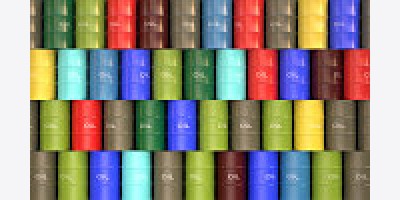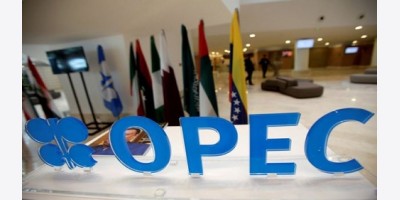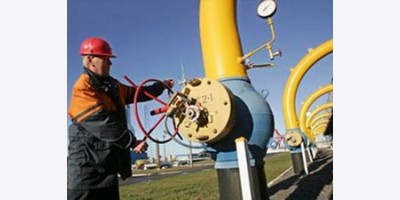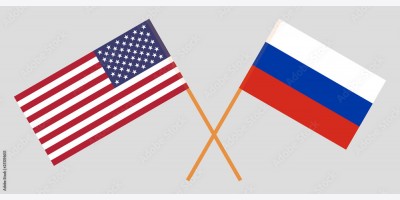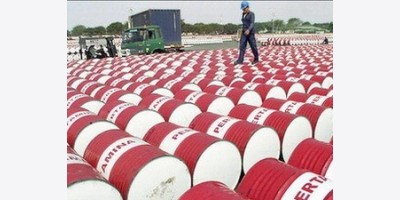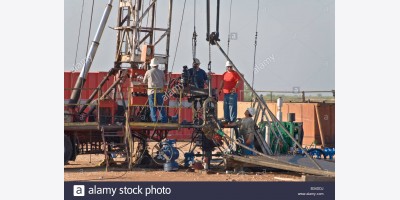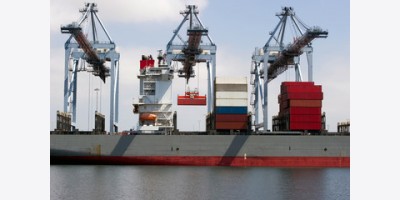By Bloomberg
The Obama administration is blocking certain U.S. exports to Russia, including some used in its oil and gas industry, expanding the response to the annexation of Crimea.
The State Department said today it halted licensing for exports of defense items and services on March 24. The Commerce Department posted a notice on its website saying it had also suspending licensing, effective March 1.
Goods licensed by Commerce alone represented $1.5 billion, or 14 percent of all U.S. exports to Russia last year.
“This is a lot more significant than blocking some oligarchs,” said Michael Burton, a Washington lawyer who works on export controls. “In light of the allegations that have been made, how could we continue to license, say, rifle scopes to Russia?”
The U.S. has previously issued sanctions to business leaders and government officials with ties to Russian President Vladimir Putin, as well as a bank. Earlier this month, President Barack Obama targeted seven Russian officials and four people from Ukraine. Last week he blocked travel and froze the assets of 20 more Russians and Bank Rossiya. The U.S. House and Senate today passed separate bills to impose additional sanctions on Russian officials.
“Obviously we’ve been taking steps as part of our ongoing response” to Russia’s actions, Marie Harf, a State Department spokeswoman, told reporters today. The hold on export licenses is “just the latest,” she said.
Software, Detonators
Of the $1.5 billion worth of exports licensed by the Commerce Department to Russia last year, $798 million were for detonators. Those are used in oil and gas drilling, mining and construction, Burton said. Russia is the world’s third-largest producer of oil after Saudi Arabia and the U.S., according to the Energy Information Administration.
The Commerce Department also awarded licenses for $367 million in software products, according to the Bureau’s annual report. Other goods licensed last year include encrypted software, ammunition for firearms, spacecraft and chemicals.
Comparable figures for licenses issued by the State Department weren’t immediately available.
Officials from the Russian Embassy in Washington didn’t respond to a request for comment.
U.S. companies need approval to export goods that may be used by the military or terrorists. The State Department oversees licenses for defense products, while the Commerce Department controls permits for commercial items that also have a military application, or dual-use products.
Hold, Deny
“A lot of what is going to be caught are dual-use items used in” industries, especially energy, Burton, a partner at Jacobson Burton PLLC, said in an interview.
Neither Commerce nor State have said they will retract licenses that have already been granted or reject applications that have been filed, he said.
“The question will be whether it goes from hold to denial,” Burton said.
The decision by Commerce halts sales of software, electronic devices, optical sensors and cameras, which were among items licensed in 2013 by the Bureau of Industry and Security. Eugene Cottilli, a Commerce spokesman, said he didn’t have additional details.
‘Very Calibrated’
The step is “a sign that the administration is actively looking at things they can do to interdict the flow of goods,” said William Reinsch, the former head of the Commerce office responsible for export controls and the head of the National Foreign Trade Council in Washington. The Washington-based group represents exporters such as Boeing Co. (BA) of Chicago and Exxon Mobil Corp. (XOM) of Irving, Texas.
Reinsch said technology companies are most concerned by the change.
“It’s very calibrated,” he said in an interview. “This is a little step, but it’s a sign that more steps could be coming.”
The U.S. exported about $11 billion worth of goods to Russia in 2013, primarily for the transportation, machinery and chemical industries, according to Commerce Department data.
Russia in 2012 joined the Geneva-based World Trade Organization, and the U.S. that year lifted Cold War-era trade restrictions. The move -- which was supported by companies including Boeing, General Electric Co. of Fairfield, Connecticut and Caterpillar Inc. (CAT) of Peoria, Illinois -- allows the U.S. to be on sounder legal footing in cases with dealing with Russia at the WTO.
“We are closely monitoring the situation,” Seth Martin, a GE spokesman, said by e-mail of the U.S. action on export licenses. He declined to comment further.
Spokesmen from Boeing and Caterpillar declined to comment.
“Potentially, it could have a much larger commercial impact on U.S. companies than the sanctions Congress approved today,” Caitlin Webber, a Washington analyst for Bloomberg Industries, said in a phone interview of the U.S. action. “U.S. exporters could be collateral damage from this.”
To contact the reporters on this story: Brian Wingfield in Washington at bwingfield3@bloomberg.net; Mark Drajem in Washington at mdrajem@bloomberg.net
To contact the editors responsible for this story: Jon Morgan at jmorgan97@bloomberg.net Steve Geimann
By Brian Wingfield and Mark Drajem Mar 28, 2014 4:26 AM GMT+0800 58 Comments
The Obama administration is blocking certain U.S. exports to Russia, including some used in its oil and gas industry, expanding the response to the annexation of Crimea.
The State Department said today it halted licensing for exports of defense items and services on March 24. The Commerce Department posted a notice on its website saying it had also suspending licensing, effective March 1.
Goods licensed by Commerce alone represented $1.5 billion, or 14 percent of all U.S. exports to Russia last year.
“This is a lot more significant than blocking some oligarchs,” said Michael Burton, a Washington lawyer who works on export controls. “In light of the allegations that have been made, how could we continue to license, say, rifle scopes to Russia?”
The U.S. has previously issued sanctions to business leaders and government officials with ties to Russian President Vladimir Putin, as well as a bank. Earlier this month, President Barack Obama targeted seven Russian officials and four people from Ukraine. Last week he blocked travel and froze the assets of 20 more Russians and Bank Rossiya. The U.S. House and Senate today passed separate bills to impose additional sanctions on Russian officials.
“Obviously we’ve been taking steps as part of our ongoing response” to Russia’s actions, Marie Harf, a State Department spokeswoman, told reporters today. The hold on export licenses is “just the latest,” she said.
Software, Detonators
Of the $1.5 billion worth of exports licensed by the Commerce Department to Russia last year, $798 million were for detonators. Those are used in oil and gas drilling, mining and construction, Burton said. Russia is the world’s third-largest producer of oil after Saudi Arabia and the U.S., according to the Energy Information Administration.
The Commerce Department also awarded licenses for $367 million in software products, according to the Bureau’s annual report. Other goods licensed last year include encrypted software, ammunition for firearms, spacecraft and chemicals.
Comparable figures for licenses issued by the State Department weren’t immediately available.
Officials from the Russian Embassy in Washington didn’t respond to a request for comment.
U.S. companies need approval to export goods that may be used by the military or terrorists. The State Department oversees licenses for defense products, while the Commerce Department controls permits for commercial items that also have a military application, or dual-use products.
Hold, Deny
“A lot of what is going to be caught are dual-use items used in” industries, especially energy, Burton, a partner at Jacobson Burton PLLC, said in an interview.
Neither Commerce nor State have said they will retract licenses that have already been granted or reject applications that have been filed, he said.
“The question will be whether it goes from hold to denial,” Burton said.
The decision by Commerce halts sales of software, electronic devices, optical sensors and cameras, which were among items licensed in 2013 by the Bureau of Industry and Security. Eugene Cottilli, a Commerce spokesman, said he didn’t have additional details.
‘Very Calibrated’
The step is “a sign that the administration is actively looking at things they can do to interdict the flow of goods,” said William Reinsch, the former head of the Commerce office responsible for export controls and the head of the National Foreign Trade Council in Washington. The Washington-based group represents exporters such as Boeing Co. (BA) of Chicago and Exxon Mobil Corp. (XOM) of Irving, Texas.
Reinsch said technology companies are most concerned by the change.
“It’s very calibrated,” he said in an interview. “This is a little step, but it’s a sign that more steps could be coming.”
The U.S. exported about $11 billion worth of goods to Russia in 2013, primarily for the transportation, machinery and chemical industries, according to Commerce Department data.
Russia in 2012 joined the Geneva-based World Trade Organization, and the U.S. that year lifted Cold War-era trade restrictions. The move -- which was supported by companies including Boeing, General Electric Co. of Fairfield, Connecticut and Caterpillar Inc. (CAT) of Peoria, Illinois -- allows the U.S. to be on sounder legal footing in cases with dealing with Russia at the WTO.
“We are closely monitoring the situation,” Seth Martin, a GE spokesman, said by e-mail of the U.S. action on export licenses. He declined to comment further.
Spokesmen from Boeing and Caterpillar declined to comment.
“Potentially, it could have a much larger commercial impact on U.S. companies than the sanctions Congress approved today,” Caitlin Webber, a Washington analyst for Bloomberg Industries, said in a phone interview of the U.S. action. “U.S. exporters could be collateral damage from this.”
To contact the reporters on this story: Brian Wingfield in Washington at bwingfield3@bloomberg.net; Mark Drajem in Washington at mdrajem@bloomberg.net
To contact the editors responsible for this story: Jon Morgan at jmorgan97@bloomberg.net Steve Geimann
By Brian Wingfield and Mark Drajem Mar 28, 2014 4:26 AM GMT+0800 58 Comments
The Obama administration is blocking certain U.S. exports to Russia, including some used in its oil and gas industry, expanding the response to the annexation of Crimea.
The State Department said today it halted licensing for exports of defense items and services on March 24. The Commerce Department posted a notice on its website saying it had also suspending licensing, effective March 1.
Goods licensed by Commerce alone represented $1.5 billion, or 14 percent of all U.S. exports to Russia last year.
“This is a lot more significant than blocking some oligarchs,” said Michael Burton, a Washington lawyer who works on export controls. “In light of the allegations that have been made, how could we continue to license, say, rifle scopes to Russia?”
The U.S. has previously issued sanctions to business leaders and government officials with ties to Russian President Vladimir Putin, as well as a bank. Earlier this month, President Barack Obama targeted seven Russian officials and four people from Ukraine. Last week he blocked travel and froze the assets of 20 more Russians and Bank Rossiya. The U.S. House and Senate today passed separate bills to impose additional sanctions on Russian officials.
“Obviously we’ve been taking steps as part of our ongoing response” to Russia’s actions, Marie Harf, a State Department spokeswoman, told reporters today. The hold on export licenses is “just the latest,” she said.
Software, Detonators
Of the $1.5 billion worth of exports licensed by the Commerce Department to Russia last year, $798 million were for detonators. Those are used in oil and gas drilling, mining and construction, Burton said. Russia is the world’s third-largest producer of oil after Saudi Arabia and the U.S., according to the Energy Information Administration.
The Commerce Department also awarded licenses for $367 million in software products, according to the Bureau’s annual report. Other goods licensed last year include encrypted software, ammunition for firearms, spacecraft and chemicals.
Comparable figures for licenses issued by the State Department weren’t immediately available.
Officials from the Russian Embassy in Washington didn’t respond to a request for comment.
U.S. companies need approval to export goods that may be used by the military or terrorists. The State Department oversees licenses for defense products, while the Commerce Department controls permits for commercial items that also have a military application, or dual-use products.
Hold, Deny
“A lot of what is going to be caught are dual-use items used in” industries, especially energy, Burton, a partner at Jacobson Burton PLLC, said in an interview.
Neither Commerce nor State have said they will retract licenses that have already been granted or reject applications that have been filed, he said.
“The question will be whether it goes from hold to denial,” Burton said.
The decision by Commerce halts sales of software, electronic devices, optical sensors and cameras, which were among items licensed in 2013 by the Bureau of Industry and Security. Eugene Cottilli, a Commerce spokesman, said he didn’t have additional details.
‘Very Calibrated’
The step is “a sign that the administration is actively looking at things they can do to interdict the flow of goods,” said William Reinsch, the former head of the Commerce office responsible for export controls and the head of the National Foreign Trade Council in Washington. The Washington-based group represents exporters such as Boeing Co. (BA) of Chicago and Exxon Mobil Corp. (XOM) of Irving, Texas.
Reinsch said technology companies are most concerned by the change.
“It’s very calibrated,” he said in an interview. “This is a little step, but it’s a sign that more steps could be coming.”
The U.S. exported about $11 billion worth of goods to Russia in 2013, primarily for the transportation, machinery and chemical industries, according to Commerce Department data.
Russia in 2012 joined the Geneva-based World Trade Organization, and the U.S. that year lifted Cold War-era trade restrictions. The move -- which was supported by companies including Boeing, General Electric Co. of Fairfield, Connecticut and Caterpillar Inc. (CAT) of Peoria, Illinois -- allows the U.S. to be on sounder legal footing in cases with dealing with Russia at the WTO.
“We are closely monitoring the situation,” Seth Martin, a GE spokesman, said by e-mail of the U.S. action on export licenses. He declined to comment further.
Spokesmen from Boeing and Caterpillar declined to comment.
“Potentially, it could have a much larger commercial impact on U.S. companies than the sanctions Congress approved today,” Caitlin Webber, a Washington analyst for Bloomberg Industries, said in a phone interview of the U.S. action. “U.S. exporters could be collateral damage from this.”
To contact the reporters on this story: Brian Wingfield in Washington at bwingfield3@bloomberg.net; Mark Drajem in Washington at mdrajem@bloomberg.net
To contact the editors responsible for this story: Jon Morgan at jmorgan97@bloomberg.net Steve Geimann
By Brian Wingfield and Mark Drajem Mar 28, 2014 4:26 AM GMT+0800 58 Comments
The Obama administration is blocking certain U.S. exports to Russia, including some used in its oil and gas industry, expanding the response to the annexation of Crimea.
The State Department said today it halted licensing for exports of defense items and services on March 24. The Commerce Department posted a notice on its website saying it had also suspending licensing, effective March 1.
Goods licensed by Commerce alone represented $1.5 billion, or 14 percent of all U.S. exports to Russia last year.
“This is a lot more significant than blocking some oligarchs,” said Michael Burton, a Washington lawyer who works on export controls. “In light of the allegations that have been made, how could we continue to license, say, rifle scopes to Russia?”
The U.S. has previously issued sanctions to business leaders and government officials with ties to Russian President Vladimir Putin, as well as a bank. Earlier this month, President Barack Obama targeted seven Russian officials and four people from Ukraine. Last week he blocked travel and froze the assets of 20 more Russians and Bank Rossiya. The U.S. House and Senate today passed separate bills to impose additional sanctions on Russian officials.
“Obviously we’ve been taking steps as part of our ongoing response” to Russia’s actions, Marie Harf, a State Department spokeswoman, told reporters today. The hold on export licenses is “just the latest,” she said.
Software, Detonators
Of the $1.5 billion worth of exports licensed by the Commerce Department to Russia last year, $798 million were for detonators. Those are used in oil and gas drilling, mining and construction, Burton said. Russia is the world’s third-largest producer of oil after Saudi Arabia and the U.S., according to the Energy Information Administration.
The Commerce Department also awarded licenses for $367 million in software products, according to the Bureau’s annual report. Other goods licensed last year include encrypted software, ammunition for firearms, spacecraft and chemicals.
Comparable figures for licenses issued by the State Department weren’t immediately available.
Officials from the Russian Embassy in Washington didn’t respond to a request for comment.
U.S. companies need approval to export goods that may be used by the military or terrorists. The State Department oversees licenses for defense products, while the Commerce Department controls permits for commercial items that also have a military application, or dual-use products.
Hold, Deny
“A lot of what is going to be caught are dual-use items used in” industries, especially energy, Burton, a partner at Jacobson Burton PLLC, said in an interview.
Neither Commerce nor State have said they will retract licenses that have already been granted or reject applications that have been filed, he said.
“The question will be whether it goes from hold to denial,” Burton said.
The decision by Commerce halts sales of software, electronic devices, optical sensors and cameras, which were among items licensed in 2013 by the Bureau of Industry and Security. Eugene Cottilli, a Commerce spokesman, said he didn’t have additional details.
‘Very Calibrated’
The step is “a sign that the administration is actively looking at things they can do to interdict the flow of goods,” said William Reinsch, the former head of the Commerce office responsible for export controls and the head of the National Foreign Trade Council in Washington. The Washington-based group represents exporters such as Boeing Co. (BA) of Chicago and Exxon Mobil Corp. (XOM) of Irving, Texas.
Reinsch said technology companies are most concerned by the change.
“It’s very calibrated,” he said in an interview. “This is a little step, but it’s a sign that more steps could be coming.”
The U.S. exported about $11 billion worth of goods to Russia in 2013, primarily for the transportation, machinery and chemical industries, according to Commerce Department data.
Russia in 2012 joined the Geneva-based World Trade Organization, and the U.S. that year lifted Cold War-era trade restrictions. The move -- which was supported by companies including Boeing, General Electric Co. of Fairfield, Connecticut and Caterpillar Inc. (CAT) of Peoria, Illinois -- allows the U.S. to be on sounder legal footing in cases with dealing with Russia at the WTO.
“We are closely monitoring the situation,” Seth Martin, a GE spokesman, said by e-mail of the U.S. action on export licenses. He declined to comment further.
Spokesmen from Boeing and Caterpillar declined to comment.
“Potentially, it could have a much larger commercial impact on U.S. companies than the sanctions Congress approved today,” Caitlin Webber, a Washington analyst for Bloomberg Industries, said in a phone interview of the U.S. action. “U.S. exporters could be collateral damage from this.”
To contact the reporters on this story: Brian Wingfield in Washington at bwingfield3@bloomberg.net; Mark Drajem in Washington at mdrajem@bloomberg.net
To contact the editors responsible for this story: Jon Morgan at jmorgan97@bloomberg.net Steve Geimann
By Brian Wingfield and Mark Drajem Mar 28, 2014 4:26 AM GMT+0800 58 Comments
The Obama administration is blocking certain U.S. exports to Russia, including some used in its oil and gas industry, expanding the response to the annexation of Crimea.
The State Department said today it halted licensing for exports of defense items and services on March 24. The Commerce Department posted a notice on its website saying it had also suspending licensing, effective March 1.
Goods licensed by Commerce alone represented $1.5 billion, or 14 percent of all U.S. exports to Russia last year.
“This is a lot more significant than blocking some oligarchs,” said Michael Burton, a Washington lawyer who works on export controls. “In light of the allegations that have been made, how could we continue to license, say, rifle scopes to Russia?”
The U.S. has previously issued sanctions to business leaders and government officials with ties to Russian President Vladimir Putin, as well as a bank. Earlier this month, President Barack Obama targeted seven Russian officials and four people from Ukraine. Last week he blocked travel and froze the assets of 20 more Russians and Bank Rossiya. The U.S. House and Senate today passed separate bills to impose additional sanctions on Russian officials.
“Obviously we’ve been taking steps as part of our ongoing response” to Russia’s actions, Marie Harf, a State Department spokeswoman, told reporters today. The hold on export licenses is “just the latest,” she said.
Software, Detonators
Of the $1.5 billion worth of exports licensed by the Commerce Department to Russia last year, $798 million were for detonators. Those are used in oil and gas drilling, mining and construction, Burton said. Russia is the world’s third-largest producer of oil after Saudi Arabia and the U.S., according to the Energy Information Administration.
The Commerce Department also awarded licenses for $367 million in software products, according to the Bureau’s annual report. Other goods licensed last year include encrypted software, ammunition for firearms, spacecraft and chemicals.
Comparable figures for licenses issued by the State Department weren’t immediately available.
Officials from the Russian Embassy in Washington didn’t respond to a request for comment.
U.S. companies need approval to export goods that may be used by the military or terrorists. The State Department oversees licenses for defense products, while the Commerce Department controls permits for commercial items that also have a military application, or dual-use products.
Hold, Deny
“A lot of what is going to be caught are dual-use items used in” industries, especially energy, Burton, a partner at Jacobson Burton PLLC, said in an interview.
Neither Commerce nor State have said they will retract licenses that have already been granted or reject applications that have been filed, he said.
“The question will be whether it goes from hold to denial,” Burton said.
The decision by Commerce halts sales of software, electronic devices, optical sensors and cameras, which were among items licensed in 2013 by the Bureau of Industry and Security. Eugene Cottilli, a Commerce spokesman, said he didn’t have additional details.
‘Very Calibrated’
The step is “a sign that the administration is actively looking at things they can do to interdict the flow of goods,” said William Reinsch, the former head of the Commerce office responsible for export controls and the head of the National Foreign Trade Council in Washington. The Washington-based group represents exporters such as Boeing Co. (BA) of Chicago and Exxon Mobil Corp. (XOM) of Irving, Texas.
Reinsch said technology companies are most concerned by the change.
“It’s very calibrated,” he said in an interview. “This is a little step, but it’s a sign that more steps could be coming.”
The U.S. exported about $11 billion worth of goods to Russia in 2013, primarily for the transportation, machinery and chemical industries, according to Commerce Department data.
Russia in 2012 joined the Geneva-based World Trade Organization, and the U.S. that year lifted Cold War-era trade restrictions. The move -- which was supported by companies including Boeing, General Electric Co. of Fairfield, Connecticut and Caterpillar Inc. (CAT) of Peoria, Illinois -- allows the U.S. to be on sounder legal footing in cases with dealing with Russia at the WTO.
“We are closely monitoring the situation,” Seth Martin, a GE spokesman, said by e-mail of the U.S. action on export licenses. He declined to comment further.
Spokesmen from Boeing and Caterpillar declined to comment.
“Potentially, it could have a much larger commercial impact on U.S. companies than the sanctions Congress approved today,” Caitlin Webber, a Washington analyst for Bloomberg Industries, said in a phone interview of the U.S. action. “U.S. exporters could be collateral damage from this.”
To contact the reporters on this story: Brian Wingfield in Washington at bwingfield3@bloomberg.net; Mark Drajem in Washington at mdrajem@bloomberg.net
To contact the editors responsible for this story: Jon Morgan at jmorgan97@bloomberg.net Steve Geimann







